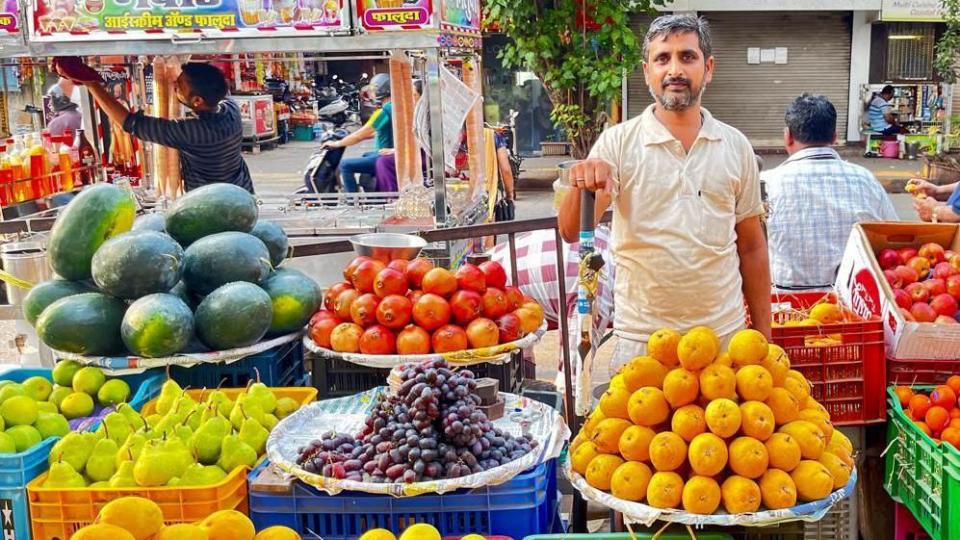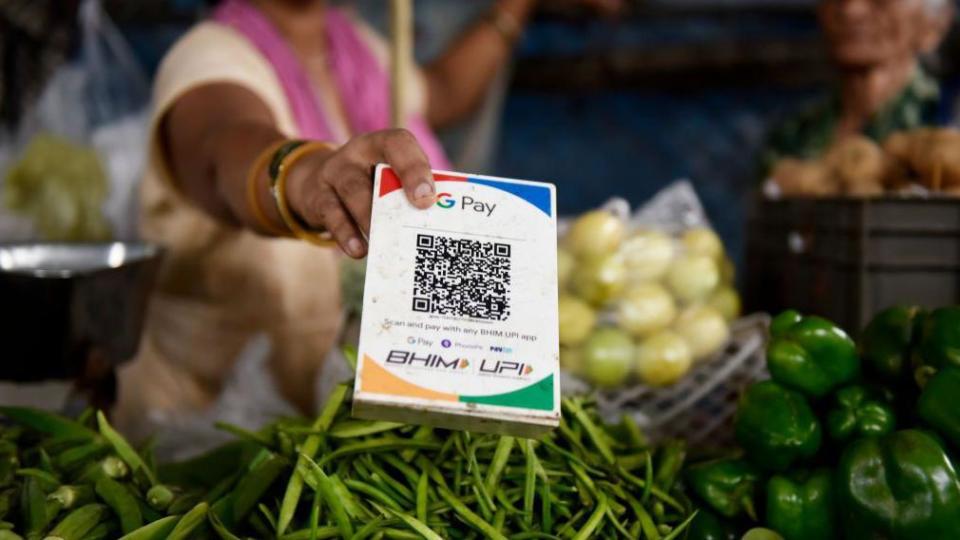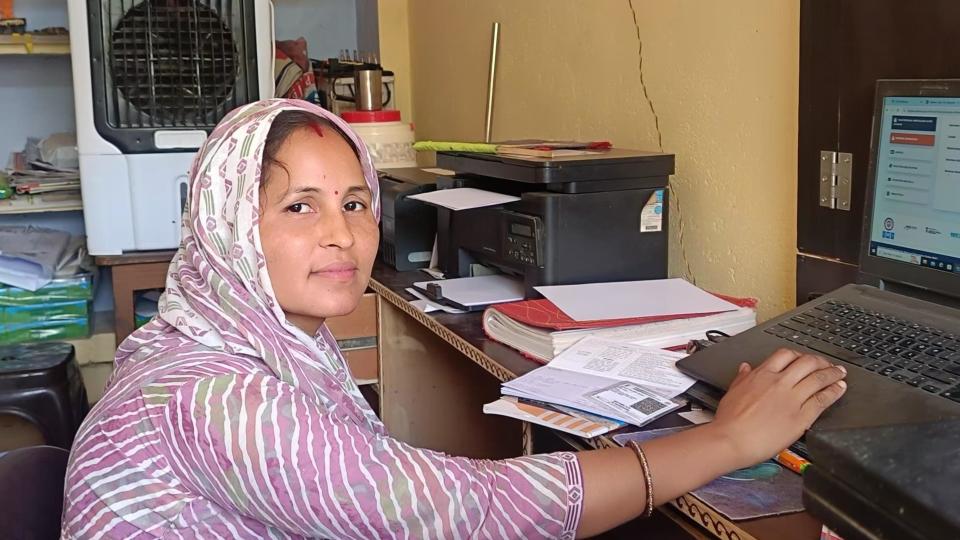Why both businesses and scammers love India's payment system

Every day, for the last seven years, Arun Kumar has set up his fruit stall on a busy Mumbai street.
It's not an easy way to make a living.
“Being a street vendor is a challenge. There's the fear of being robbed or, as I am not a licensed vendor, the local body can come and dismantle my store anytime," he says.
But over the past four years at least one aspect of his work has become easier.
“Prior to Covid everything was in cash. But now everyone pays with UPI. Scan the code and the payment is done within seconds.
"No issues of handling cash, giving change to customers. It has made my life and business smooth,” he says.
UPI, or to give it its full name the Unified Payments Interface, was launched in 2016 in a collaboration between India's central bank and the nation's banking industry.
It's an app-based instant payment system, which allows users to send and receive money, pay bills and authorise payments in a single step - no need to enter bank details or any other personal information. And, perhaps most importantly, it's free.
It has become so popular that India is now the biggest real-time payments market.
In May, UPI recorded 14 billion transactions, up from nine billion the year before.

But the popularity and ease of use has made it a rich feeding ground for scammers.
“While digital payments are convenient, they do come with vulnerabilities," says Shashank Shekhar, founder of the Delhi-based Future Crime Research Foundation.
Mr Shekhar says that scammers use a variety of ways to trick people, including persuading them to share their UPI pin number, which is needed to authorise payments.
Some scammers have also created fake UPI apps, that are clones of legitimate banking apps, and then steal login details or other valuable information.
"The pace at which digital transformation took place in the country means unfortunately digital literacy and safe internet practice could not catch up," says Mr Shekhar.
He says that between January 2020 and June 2023 almost half of all financial fraud involved the use of the UPI system.
According to government figures there were more than 95,000 cases of fraud involving UPI in the financial year ending April 2023, up from 77,000 in the previous year.
Shivkali was one such victim. She had always wanted to own a scooter, but they were beyond her budget.
However, earlier in the year the 22-year-old, who lives in Bihar state in northeastern India, spotted one for sale on Facebook that looked like a great deal.
"I grabbed the opportunity without thinking," she says.
A couple of clicks later and she was talking to the owner, who said that for $23 he would send over the vehicle papers.
That went smoothly, so Shivkali continued to send the owner money, via instant transfers. She eventually ended up paying $200, but the scooter (also commonly called a Scooty in India), was never delivered.
Shivkali realised she had been scammed.
"I did not think I could be cheated, as I have some education background and know what is happing in the world. But scammers are smart. They have an art of speaking to convince the opposite person,” she says.
The government and the central bank are looking at ways to protect UPI users from scammers.
But at the moment, if a victim wants compensation, they have to approach their bank.
“The problem is deep rooted," says Dr Durgesh Pandey, an expert in financial crime.
"Most of the onus lies with banks and telecom companies. They are lax in making identity checks, that’s why the fraudster can’t be traced.
"But the challenge for banks particularly is that they have to balance between inclusivity, ease of business and enforcement of identity checks. If they are too rigid, the vulnerable section of society will remain without banking facilities.”
But Dr Pandey argues that in most cases of fraud, the bank is not totally to blame.
“It’s a complex question because the problem lies with banks, but it’s the victim who is giving his credentials in most case. I would say both victim and bank should bear the loss.”

Despite those problems, UPI is being promoted in rural areas where access to banking services can be difficult.
Poonam Untwal from Rajasthan runs a guidance centre which helps people use the internet and digital banking.
"Most of us are not that educated, nor know the proper use of smartphones. I teach them that phones are no longer a device just to talk to people but banks at their fingertips," she says.
She believes that UPI will help develop the local economy.
"Many women like me have a small business that we run from our home. Now we can receive and send money with UPI. People who don’t have smart phones come to my centre to get their transactions done," she says.
As well as making inroads into rural areas, UPI is spreading overseas.
Retailers in Bhutan, Mauritius, Nepal, Singapore, Sri Lanka and UAE will take UPI payments.
And this year, France become the first European country to accept UPI payments, starting with tickets to the Eiffel Tower.
Back in Mumbai, Mr Kumar is happy that he no longer has to use cash, but remains wary.
If he can't get a good internet connection then customers can, by accident or design, make off without paying.
"For a small vendor like me it [UPI] made receiving money very easy. But I am always scared of fraud. I keep hearing in the news how the UPI frauds are increasing. Hopefully some mechanisms are invented so a small vendor like me doesn’t face losses.”